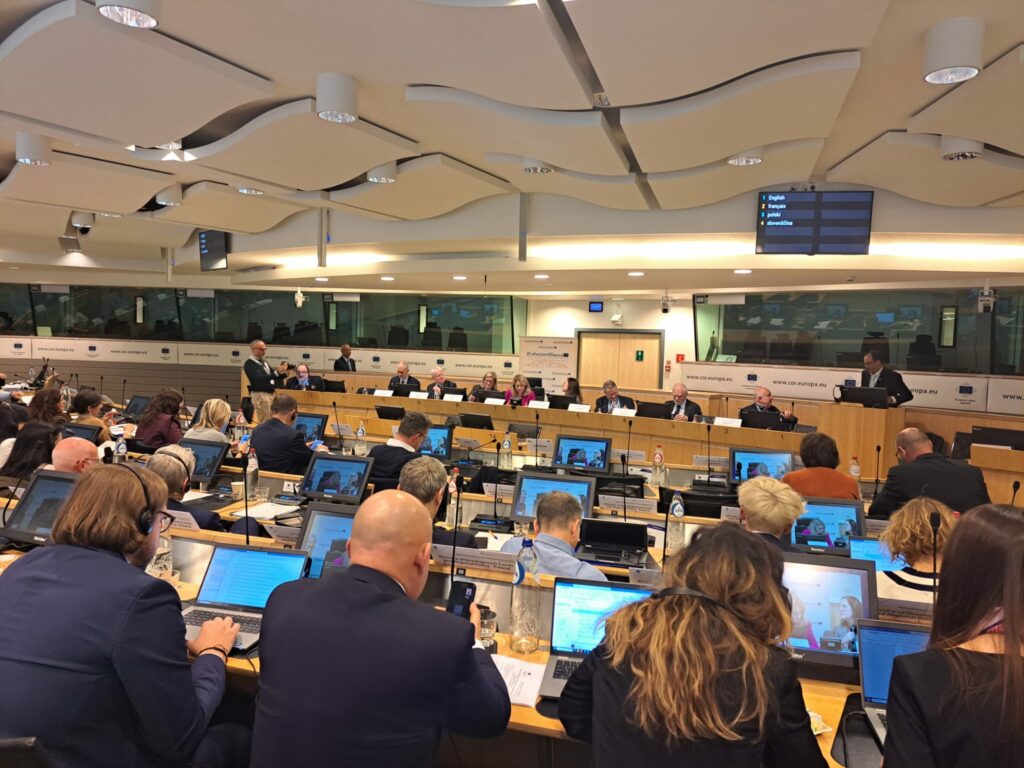High-Level Dialogue on the Future of Cohesion Policy: “Nothing About the Regions, Without the Regions”
19/11/2025

On 18 November 2025, the European Committee of the Regions (CoR) hosted a high-level dialogue on the future of Cohesion Policy at a decisive moment for the European Union. With negotiations underway for the post-2027 Multiannual Financial Framework (MFF), representatives from EU institutions, national governments, regions, and expert organisations gathered in Brussels to assess the European Commission’s recent proposals and their implications for the Union’s territorial, social and economic cohesion. EARLALL was also present, contributing to the debate from the perspective of regions committed to lifelong learning and territorial development.
From the outset, the message was unequivocal: Cohesion Policy remains the backbone of European integration, and its future must continue to reflect the diversity and realities of Europe’s territories. As one participant aptly summarised, “Nothing about the regions, without the regions.”
A Call to Defend the Territorial Dimension of Europe
Opening the event, Vasco Alves Cordeiro underlined that cohesion is not merely a financial instrument, but a core expression of the European promise that no region should be left behind. He warned that while simplification and flexibility are necessary, they must not come at the expense of the role of subnational authorities. The Commission’s July proposal, he stressed, risks doing precisely that.
Poland, represented by Undersecretary of State Monika Sikora, echoed this vision. Cohesion Policy, she noted, has been decisive for the country’s modernisation and must remain rooted in multilevel governance. “Cohesion must stay close to citizens,” she insisted, highlighting Poland’s continued commitment to the Cohesion Alliance.
Clarifications – But also Uncertainties – in the Commission’s Proposal
Peter Berkowitz (DG REGIO) presented the Commission’s perspective, outlining several new safeguards including a regional check, strengthened transparency, and a 10% rural development target. While intended as clarifications, these measures did not fully dispel concerns shared by CoR, regions, and experts.
Professor John Bachtler (EPRC) offered a detailed analysis, applauding some progress but warning that the merging of policy headings, reduced funding, and new allocation mechanisms risk weakening the visibility, predictability and territorial focus of Cohesion Policy. He stressed potential long-term risks: wider territorial disparities and a drift toward renationalisation.


Governance: The Heart of the Debate
Governance issues dominated the second panel.
Former MEP Jan Olbrycht underlined that the proposed model resembles the Recovery and Resilience Facility (RRF), where consultations with regions are not mandatory. Several speakers warned this could sideline regions, weaken partnership principles, and undermine the effectiveness of territorial investment.
Spain’s Mercedes Caballero highlighted the incompatibility between a single national plan and decentralised systems like Spain’s, where regions hold extensive competences. Without clear regional involvement, she warned, the EU risks returning to “a Europe of nations, not a Europe of regions.”
Representatives from Portugal and the Socialist group raised further concerns about missing references to geography, smart specialisation, and the risk of political use of centralised funds.
Interinstitutional Perspectives: A Shared Responsibility
Council representative Peter Hedegaard-Degn emphasised that discussions are at an early stage and that Member States hold diverging views. Cooperation between national and regional levels varies significantly, making a one-size-fits-all model unrealistic.
In contrast, the European Parliament delivered a strong, united message. MEPs Siegfried Muresan and Carla Tavares reaffirmed Parliament’s commitment to ensuring that regions remain central to Cohesion Policy and to preserving standalone, predictable funding for cohesion and agriculture.
A United Call for a Stronger, More Territorial Cohesion Policy
Across all panels, a consistent message emerged:
- Cohesion Policy must remain a long-term, place-based investment tool.
- Regions and cities must be involved at all stages of planning and implementation.
- The proposal needs substantial revision to safeguard territorial cohesion and multilevel governance.
As the Union enters a new phase of negotiations leading up to the December European Council, participants stressed the need for continued dialogue and collective action.

